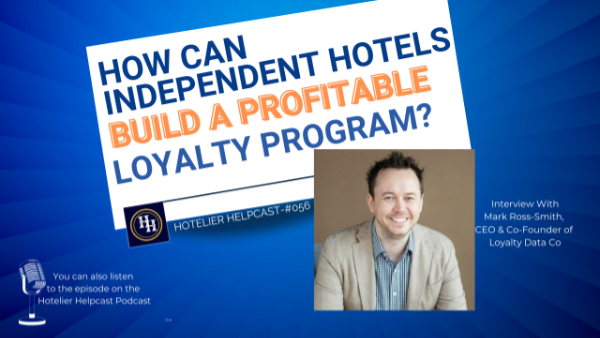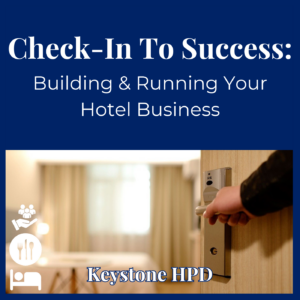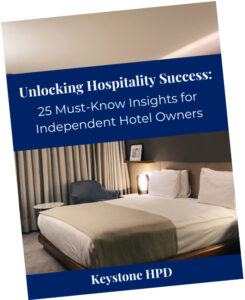-
Wondering how loyalty programs can boost your independent hotel’s bottom line? You’re not alone!
- Learn the key strategies from Mark Ross Smith, CEO and co-founder of Loyalty Data Co., that turn loyalty programs into a profit-driving machine for independent hotels, with no big budgets required.
- How Can Independent Hotels Build a Profitable Loyalty Program?-056
- How Can Independent Hotels Maximise Exposure On OTAs?-055
- How Can Updating Your Hotels Amenities Boost Guest Satisfaction?-053
Wondering how loyalty programs can boost your independent hotel’s bottom line? You’re not alone!
Learn the key strategies from Mark Ross Smith, CEO and co-founder of Loyalty Data Co., that turn loyalty programs into a profit-driving machine for independent hotels, with no big budgets required.
Gerry
Today, I’m very happy to chat with Mark Ross Smith, CEO and co-founder of Loyalty Data Co., the parent brand of StatusMatch.com. Our topic today is loyalty programs and how they can work for you.
.
As I mentioned, Mark is the CEO and co-founder of Loyalty Data Co., the parent brand of StatusMatch.com. He is also the editor of Travel Data Daily and was the head of loyalty at Malaysia Airlines. If you’ve ever wondered if loyalty programs work, how they work, and how to start one, you are in the right place.
.
All that being said, let’s jump into it. Our interview today at the Hospitality Property School is with Mark Ross Smith, CEO and co-founder of Loyalty Data Co., the parent brand of StatusMatch.com. He’s also the editor of Travel Data Daily and was head of loyalty at Malaysia Airlines. Mark has written numerous articles about loyalty programs, specifically focusing on airline loyalty programs. Now, some of you might be wondering how this topic applies to the hotel industry. If you don’t currently have, or aren’t planning to introduce, a loyalty program at your property, you’re leaving money on the table. Mark’s experience with loyalty in the airline industry can definitely be related to the hospitality property industry.
.
All that being said, Mark, are you ready to jump into this?
.
Mark
I’m here and ready, Gerry.
Gerry
Good, good. Years ago, I was flying consistently as a tour operator and manager, and I had a wallet full of airline loyalty cards but never really took advantage of the perks available. Would you mind explaining what a loyalty program is?
.
Mark
Sure. Let’s dive into it. If you ask some airline or hotel CEOs what a loyalty program is, they’ll say something like, “Oh, that loyalty thing. It’s not really our core business. We give out some gold cards, and it costs us money because we have to pay for free breakfasts, lounge access, upgrades, and so on.” The truth is, today, especially with airline loyalty programs, many of them run their own P&L. Some are even separate companies generating billions in profit independently of the airline. In fact, during 2020-2021, we saw financial reports where the loyalty program was worth more than the entire airline.
.
So, is it really an airline these days, or a hotel brand, or is it a marketing company with an operational aspect? The real value is often in the loyalty program itself. Since the value of these programs came to light, the role of loyalty programs has evolved. People think of them as points and upgrades, and there’s a certain magic and mystery to them. That’s why people engage with these programs. But underneath the surface, there’s a complex business structure. If you get it right, it can be extremely profitable for a hotel or airline brand.
.
Gerry
Whoa. The last couple of years have been challenging for the airline industry. Is there still a demand for loyalty programs?
.
Mark
Absolutely. Not only is there a demand, but I’d say loyalty programs are thriving. For example, Spirit Airlines recently raised $500 million at a $4.2 billion valuation, just for its loyalty business—more than the airline itself, which was valued at $2.3 billion. Delta Airlines also reported that their loyalty card revenue was up 40% compared to the same quarter in 2019. People are looking for perks and benefits because travel is expensive, and loyalty programs provide a way to get something back.
.
Loyalty programs were already set up well pre-pandemic, and now we’re seeing a resurgence. They’re driving new bookings and incremental business that airlines or hotels might not have had otherwise. It’s not just doing its job; it’s exceeding expectations.
.
Gerry
I know your expertise is with airline loyalty programs, and larger hotel chains also do well with loyalty programs. But do you think smaller properties could benefit from any type of loyalty program?
.
Mark
Absolutely. Smaller, independently owned properties often focus heavily on customer experience, which is a competitive edge. If they introduce a loyalty program, it can enhance what they’re already doing. It doesn’t have to be the typical “earn points for free nights” kind of program. It could look and feel different, more personal. For instance, the GHA Discovery loyalty program brings together smaller brands that aren’t large enough to run a global program on their own, but by pooling resources, they leverage each other’s strengths. For smaller hotels, being part of a larger loyalty ecosystem could help drive bookings, and it might even be cheaper than relying on OTAs and paying commissions.
.
Gerry
So you think loyalty programs can help a property with its branding?
.
Mark
Totally.
.
Gerry
If I owned a smaller independent property, say with around 100 rooms, would it be expensive to start a loyalty program? Is there a lot of technology involved?
.
Mark
Not really. The guest experience should be the core of your focus. There are plenty of vendors out there who offer loyalty platforms, and they all do more or less the same thing. The technology part is not what you should stress about. What you want to focus on is what you want the loyalty program to achieve—whether it’s bringing guests back, increasing spending, or protecting revenue. Once you’ve figured that out, the technology part falls into place.
.
Gerry
So it’s not something I should jump into without thinking it through?
.
Mark
Exactly. You need to think about what you want to achieve first. The technology is important, but it’s not the most critical aspect.
.
Gerry
That’s good to know. Have you found any common threads among companies that run successful loyalty programs?
.
Mark
Yes, it’s all about understanding your customer. Successful loyalty programs are designed with the core audience in mind. It’s important to know who your best customers are and how to attract more of them. Brands that get it right tend to laser-focus on the customers who drive the most revenue. It’s the whole 80/20 rule—80% of your revenue comes from 20% of your customers.
.
Gerry
Interesting. Do you think having the right mindset is important when setting up a loyalty program?
.
Mark
Yes, absolutely. You need people who understand loyalty from the customer’s perspective—people who have been loyal customers themselves and experienced the benefits. If you can relate to your customers’ pain points and needs, you’re more likely to design a successful loyalty program.
Gerry
That makes a lot of sense. It’s like having someone who has lived the experience running the program, rather than someone who just sees it from the outside.
.
Mark
Exactly. It’s one thing to understand the business aspect of loyalty programs, but it’s another to understand the emotional connection customers have with the brand. For example, some airline executives travel in first class all the time and get VIP treatment, but they never experience what a regular business traveler goes through—the frustrations, the lack of upgrades, or missing out on perks. It’s important to have people involved in designing loyalty programs who have felt that pain and understand what drives real loyalty.
.
Gerry
That reminds me of hotel owners who have never spent a night in their own hotel. They have no idea what their guests are actually experiencing. You can tell them to train their staff better or improve services, but if they don’t see the guest’s perspective, they often just see it as extra costs.
.
Mark
Exactly. You need to experience it firsthand. When I was working in the telco industry, I traveled a lot and ended up living in a serviced apartment that was part of a hotel chain for five years. I got to see what worked well and what didn’t from a guest’s perspective. It’s the same with airlines or hotels—if you’re running a loyalty program, you need to understand what the guest or customer is going through.
.
Gerry
You mentioned VIP experiences earlier. Could you expand on that? What kind of personalized experiences are we talking about?
.
Mark
People with money often want things that money can’t buy, and that’s where VIP experiences come in. It’s about creating moments that are unique and memorable, things they wouldn’t expect. Let me share a couple of personal stories to give you an idea.
.
I was flying with a major Middle Eastern airline recently. I hadn’t flown with them in about 10 years, but when I arrived at the airport, a representative came running up to me before I even reached the check-in counter, addressing me by name. She escorted me to the first-class check-in, took care of everything, and asked if I’d like to be the first or last to board the plane. They really rolled out the red carpet for me, and it didn’t cost them much. But that experience made me feel valued and special. I couldn’t buy that kind of personalized service. It created an emotional connection.
.
Another time, when I was running Malaysia Airlines’ loyalty program, I decided to surprise some of our top-tier members. I bought a bunch of Godiva chocolates with my own money, went to the airport, and personally handed them to gold and platinum members in the lounge, thanking them for their loyalty. One gentleman was so moved he became teary-eyed and told me it was the first time he had ever met anyone from the airline who thanked him in person for his loyalty. That’s the kind of moment that builds real loyalty—something personal, something genuine.
.
Gerry
That’s a fantastic example. It’s amazing how those small, personal touches can have such a big impact on loyalty. And it’s something smaller hotels could easily replicate, right?
.
Mark
Absolutely. Smaller properties can easily create these personalized, memorable experiences. It doesn’t take a lot of money, but it does take thought and effort. Those experiences build stories that guests will share with their friends, family, and on social media, which can have a huge impact on your brand’s reputation.
Don’t let your hotel lag behind – jumpstart your success with our must-read report, ‘Unlocking Hospitality Success: 25 Must-Know Insights for Independent Hotel Owners’. It’s your all-access pass to industry secrets and innovative strategies that can propel your hotel to the forefront. Don’t wait, grab your free PDF now and begin your ascent to hospitality excellence. Find the link in the show notes!
.
.
Gerry
I’ve seen that you’ve made a lot of predictions in the past and have been pretty accurate. With the last couple of years being so unpredictable, do you have any new predictions for the future of loyalty programs?
.
Mark
Yes, I do have a couple of predictions. One is what I’m calling the “status cliff,” which is coming in the next two or three months. Over the last few years, airlines and hotels have extended elite status for free because people couldn’t travel as much. But those extensions are ending, and millions of people are going to lose their elite status. Globally, we’re looking at 8-10 million people across airlines and hotels who are going to be downgraded.
.
This is a huge opportunity for brands that want to acquire new customers. When people lose their elite status, they feel a bit betrayed, even though it’s not the airline or hotel’s fault. Our survey at StatusCliff.com showed that 86% of people who lose their status are open to moving their business to another brand. So, there’s an opportunity for other airlines or hotels to swoop in and offer these customers a lifeline—offer them status with their brand and win them over.
.
Another trend I see is loyalty programs becoming more holistic in their revenue management. Instead of focusing purely on room rates or ticket prices, brands are going to look more at the lifetime value of a customer. There will be more opportunities for guests to personalize their stay, whether through upsells or add-ons, and it won’t feel like they’re being nickel-and-dimed. It’s going to be more about adding value to the customer’s experience.
.
Gerry
That sounds like a really interesting direction for the industry to go in. Tell me more about your business. What exactly do you do at StatusMatch.com?
.
Mark
We help airlines and hotels acquire high-value customers by matching their elite status from one brand to another. These are customers who already have elite status with an airline or hotel and are used to the perks that come with it—like priority check-in, lounge access, or free upgrades. They’re the kind of customers who spend more, stay or fly more frequently, and are less price-sensitive.
.
We work with brands to offer these travellers a status match. For example, if you’re a gold member with one airline, we can match that status with another airline. This encourages the traveller to move some of their business to the new brand. We’ve helped our clients generate over $700 million in customer value over the last two years. It’s a cost-effective way for brands to acquire new, loyal customers without spending a lot on marketing.
.
Gerry
That’s impressive. So, there’s no cost to the brands you work with?
.
Mark
Correct. In most cases, there’s no cost to the brands we work with, and in some cases, we even pay them to work with us. It’s a win-win situation. They get high-value customers, and we handle the onboarding and matching process.
.
Gerry
That’s brilliant. Is there anything I’ve missed asking you that would be helpful for our listeners?
.
Mark
I think we’ve covered a lot of ground today. But just to recap, loyalty programs should ultimately be about driving incremental business and making more money than they cost to operate. Whether it’s through points programs, status matches, or even fee-based memberships, they should be focused on the customer. If you get the customer experience right, the financial side will take care of itself.
.
Gerry
That’s a great summary. Mark, I really appreciate your time today. Where can people find out more about you and your work?
.
Mark
The best place to connect with me is on LinkedIn—just search for Mark Ross-Smith. You can also visit TravelDataDaily.com or check out StatusMatch.com to learn more about what we do.
.
Gerry
Thanks again, Mark. This has been excellent.
.
Mark
Thanks, Gerry. It was great chatting with you.
.
That was Mark Ross-Smith, CEO and co-founder of Loyalty Data Co. I really appreciate him taking the time to chat. I encourage you to check him out on LinkedIn, at Travel Data Daily, and on StatusMatch.com. Do you currently have or are you considering a loyalty program for your property? Let me know in the comments.
.
In our next episode, I’ll talk with Andy De Silva, the CEO of Hotel Emporium Inc.
.
Till next time, have a fun day!
⇒ TO READ OR LISTEN TO THIS EPISODE ON KEYSTONE HOSPITALITY PROPERTY DEVELOPMENT
.
Serious about taking your business to the next level? Sign up for the “Check-In to Success-Building and Running Your Hotel Business” course
.
Grab your copy of the “Unlocking Hospitality Success: 25 Must-Know Insights for Independent Hotel Owners” PDF
hotelierhelpcast.com/success-25-must-know-insights-for-independent-hotel-owners-download
.
Join our groups
.
Listen to The Hospitality Property School PODCAST here
.
YouTube Channel
Gerry MacPherson
Say hi on social…
A Division of Keystone Hospitality Property Development
How to Regain Hotel Operations Control in Your Independent Hotel-111
The Psychology of the Hotel Repeat Guests: What Really Brings Them Back?-110
Are You Working On Your Hotel Business or Just In It?-109
- 1
- 2
- 3
- 4
- …
- 37
- Go to the next page






